Interview with Dredge Developers at the TGS2023
Dredge is a game made by Black Salt Games, a studio out of New Zealand. It mixes Lovecraftian horrors with mechanics related to fishing and exploring oceans. It may sound weird on paper, but the execution is right on point and keeps you hooked. There’s only a few people behind the game:
- Nadia Thorne (Producer, CEO)
- Joel Mason (Programmer, Writer)
- Alex Ritchie (Lead Artist, 2D Art, Tech Art)
- Michael Bastiaens (3D Artist/Animator)
We have already covered Dredge multiple times in the past. We reviewed it ahead of its release (and loved it!), and we also had an interview with Nadia and Michael at the Bitsummit 2023 in July in Kyoto. At the Tokyo Games Show 2023, we finally met with the rest of the crew and had a chance to talk to Joel and Alex together.
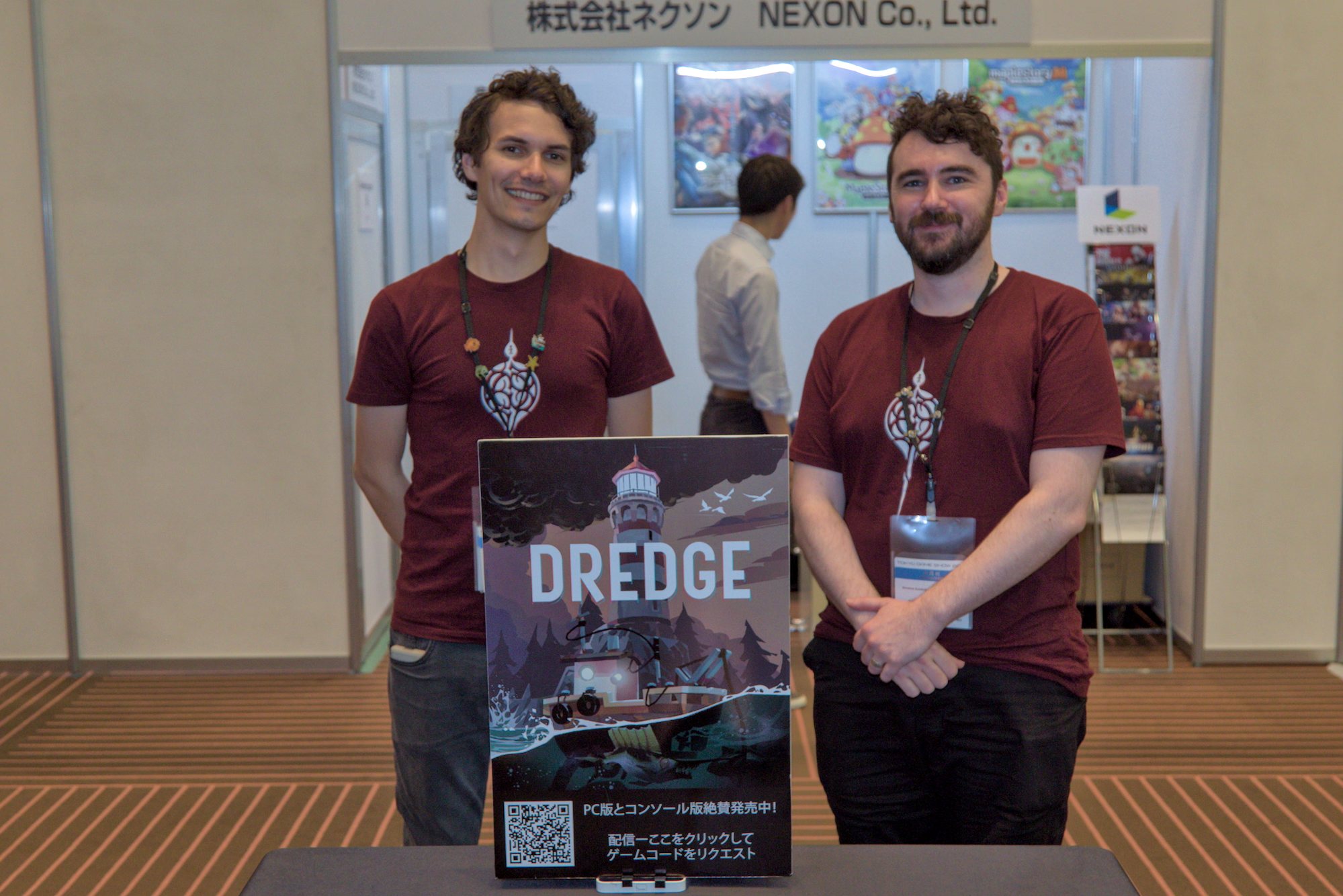
It so happens that Dredge has just received a new (paying) DLC last week, called The Pale Reach which adds a whole new zone (an icy world) at the very bottom of the map, with new creatures and mysterie to unfold.
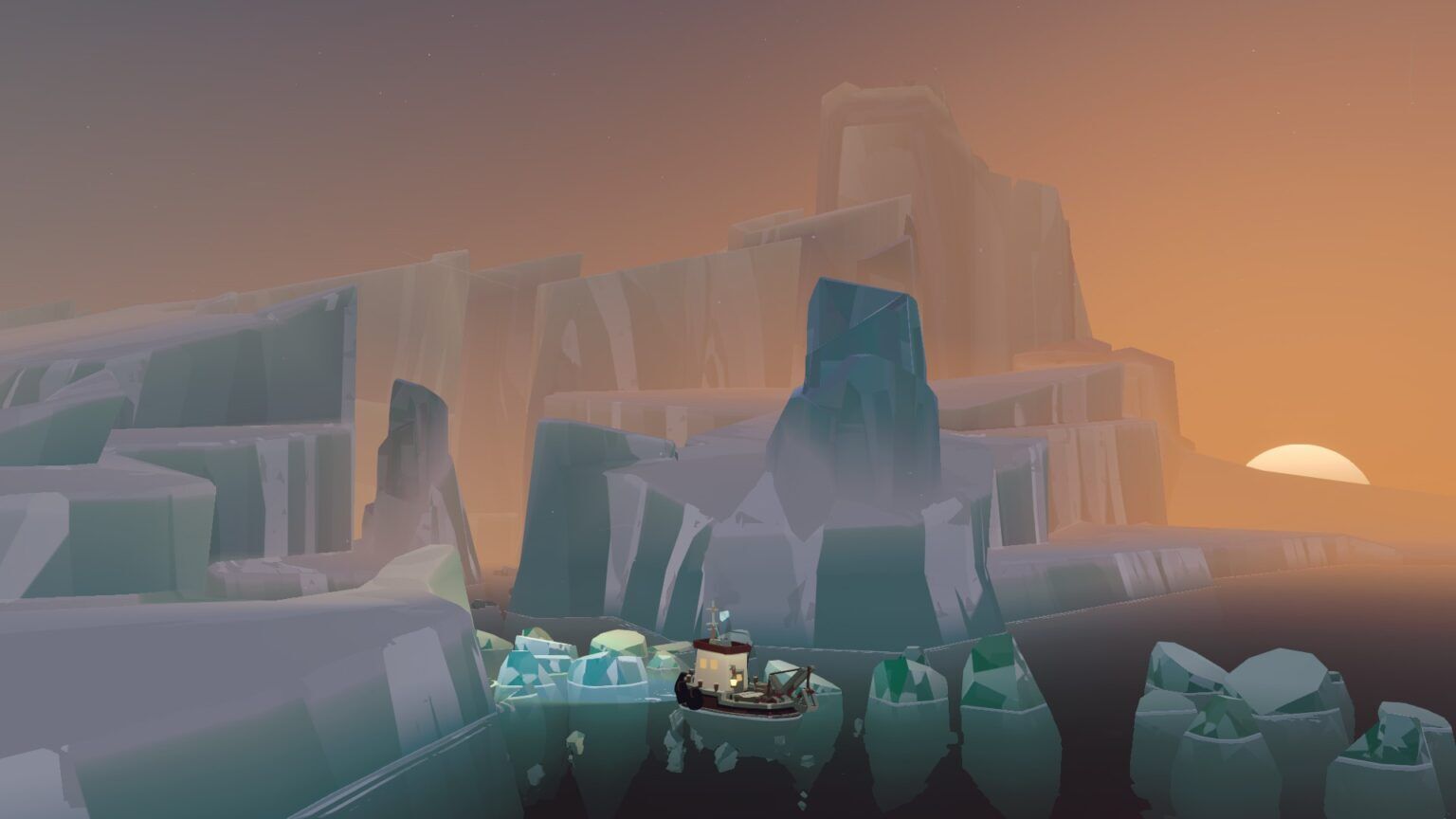
We will be coming back with a review of this DLC soon enough, but first let’s return to our conversation at the TGS 2023.
The Interview
Our transcript will start a little bit after the beginning of our conversation. In the beginning, we asked them about how they came up with the initial concept for Dredge, and what were their early prototypes like. Among some of the details they gave us, they mentioned that they did not even have the tetris-like fishing game in place at the beginning where you have to fit your fish on the boat. It started by trying to get the structure of the game right, and then in the course of our conversation they started to explain how they planned the game around the map.
You can listen to the interview, or read the transcript below.
Alex: We’re starting working on this area now. We already knew the theme of it, so we knew this one is tropical and this one is swamp and this one is volcano. And we basically just had a whiteboard and you would sketch out some islands and then we would say what could go here, We could put one of these here and one of these here and this quest could send a player this way and then back over here. So we would sort of map out where players are going to be and then adding the monster, what the monster might do realistically in a place like this. And then from that whiteboard session we would have the next two months of work planned out essentially.
Joel: We might have a few more meetings after that to flesh out areas that we have left for later. We might just be like we know vaguely what this monster is going to do and have another meeting down the line. And I think a big part of why these design sessions work is because we all work really well together and there’s only four of us putting our ideas together. So I think we’re able to work pretty quickly that way and we all get to put our ideas into it as well. So we all feel ownership over the whole story and everything.
Boiling Steam: When you got the first reviews coming in, was there something surprising you heard that you didn’t see when you were designing the game?
Joel: No, I think there was actually almost nothing that surprised us in the reviews because of the amount of playtesting that we had done. Both just through our demo that we had released the year before and Discord beta tests and our publishers testing. We’ve had hundreds of playtests and they’d all pointed out things. So there was basically nothing surprising in reviews. Some of the main detractors were there’s a particular quest that is hard to understand and we knew about that already.
Alex: Yeah, some of the things that people didn’t like but we felt like that was the vision for the game as well that we kept. We were aware of some of these things right from the beginning as well. We had a few people in the playtesters say certain things that we’ve seen as I guess negatives. So maybe some people wanted the game to be more horror or more spooky and we were always aware of what we wanted and how the level of scariness compared to cosiness we wanted.
Joel: There’s always the type of feedback that’s like, I want to be able to fit more fish in my boat. I want to be able to go faster. It’s like, well yeah, that’s why you play the game because you want to get better and upgrade that. But there is actually one very surprising piece of player feedback that we had after launch which was the handful of timed quests in the game. So when the game launched there were four completely optional side quests for a hooded figure that said I want this type of fish and you’d say okay and then maybe you would come back with that fish. But if you took too long, if you took more than ten days, you would come back and find that they had starved to death. As a player you then didn’t get the reward for that quest but it was a very small reward. It was like plus three percent of some stat and we made sure that the quest was completed and you would still get all of the achievements. Even if you failed all of these quests, people hated that. It was our number one source of negative reviews on Steam. I can deal with negative reviews but there were people who said I was eight hours into my game and this happened and now I’m going to start again, I feel like that’s ruined my experience on that side. So we patched that out so they’re no longer timed. But that was quite surprising to us.
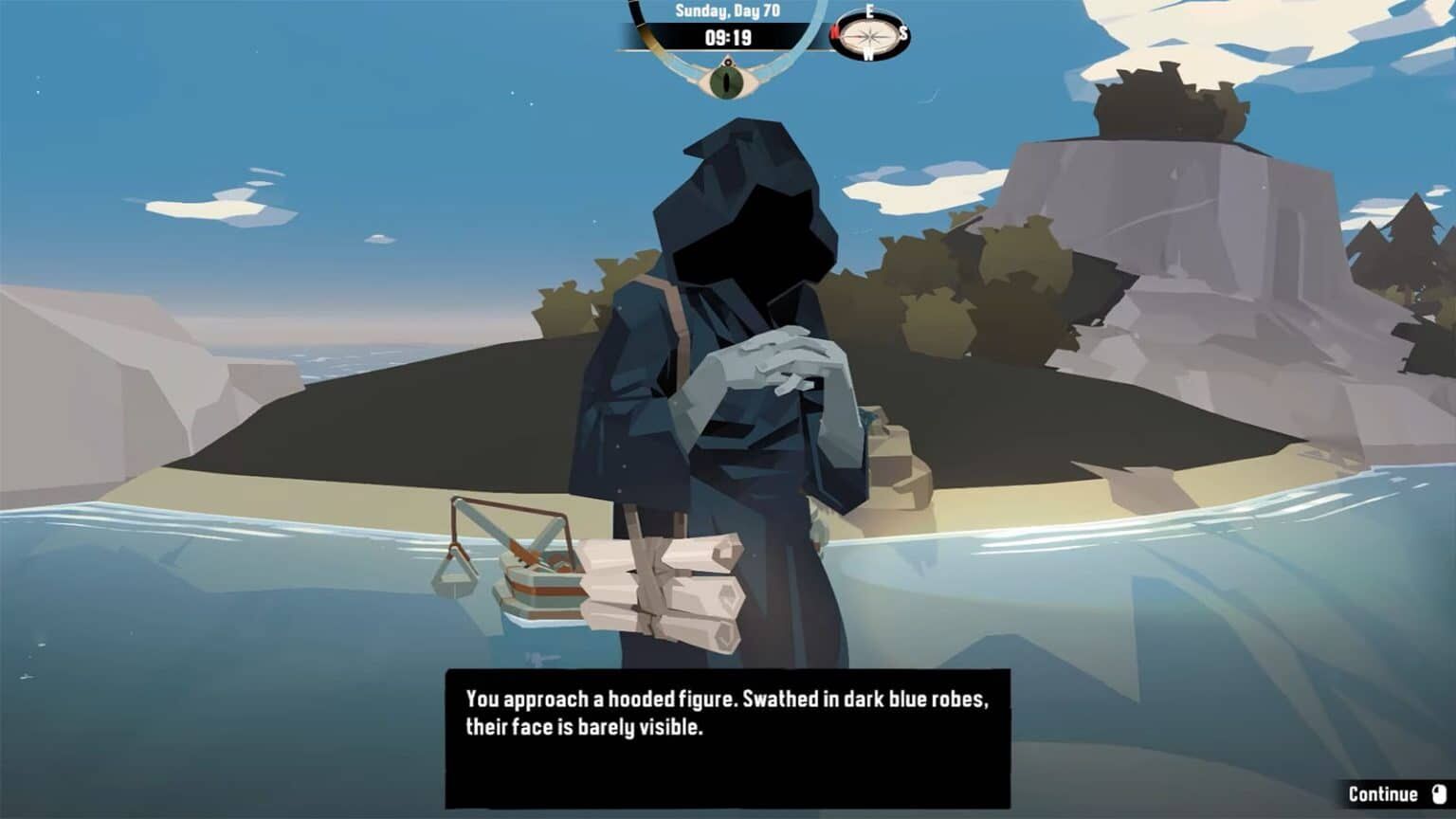
Alex: Yeah, I think during development we always thought of that as just like the quest was resolved in a different way. But then that’s not the way it came across. It came across as the quest was failed which is bad so we didn’t want that.
Boiling Steam: Did you ever consider launching a game by yourself on Steam? Or you were always going to go with a publisher?
Joel: I mean both. So we always wanted to find a publisher but we had a backup option of what we would do if we didn’t find a publisher. And it meant we probably wouldn’t reach a large audience if we didn’t have a publisher. We probably wouldn’t have had as many languages as we could have. Wouldn’t have had as many influencers and stuff. And Team 17 allowed us to do all of that stuff. And you know, send us to conventions around the world. So yeah, that’s been great.
Alex: Yeah, they give that kind of authenticity to a brand new studio. We also had, we had pretty big gaps in our knowledge in terms of like marketing. That was not any of our kind of, we had not had a lot of experience with that. We would be making games together for like 10 years or in some cases more. But we never actually released our own game. It was games for other people. So the publisher really helped out with getting visibility and marketing.
Boiling Steam: Did you get any feedback from Team 17, and if yes, what kind?
Joel: Yeah, there was feedback on the design just from like one person’s opinion kind of standpoint. But then there was also play testing run by the publisher as well. And it’s different from ours. We like to do it with ours anyway. But yeah, they would come back and say, oh, you know, this person struggled to understand this bit. And a lot of the time we would go in and fix things and change some UI or something. But like I said, there are some things that, oh yeah, players want to go faster. Sure, play the game more.
Boiling Steam: How did you tweak the game? Did you have a target audience in mind?
Joel: So in a roundabout way, the way that we decided to work on Dredge was at the start of our studio, when we came together and made Black Salt Games, we said, what do we like to play? And what do we not like to play? And, you know, we said, oh, we don’t really want to make a first person shooter or a driving game or whatever. And we do like to make RPGs and games with upgrade systems and stuff. So then all of our game pitches were in the corner of the games that we wanted to make. And, you know, every game has its own target audience. And we were just targeting ourselves, I guess. We knew that we were hitting a small audience with Dredge because fishing is a niche. And it’s generally not a standard thing.
Boiling Steam: It did fantastic.
Joel: It did. Yeah.
Boiling Steam: Is there like an fishing game trend going on right now? Dave the Diver, and so on.
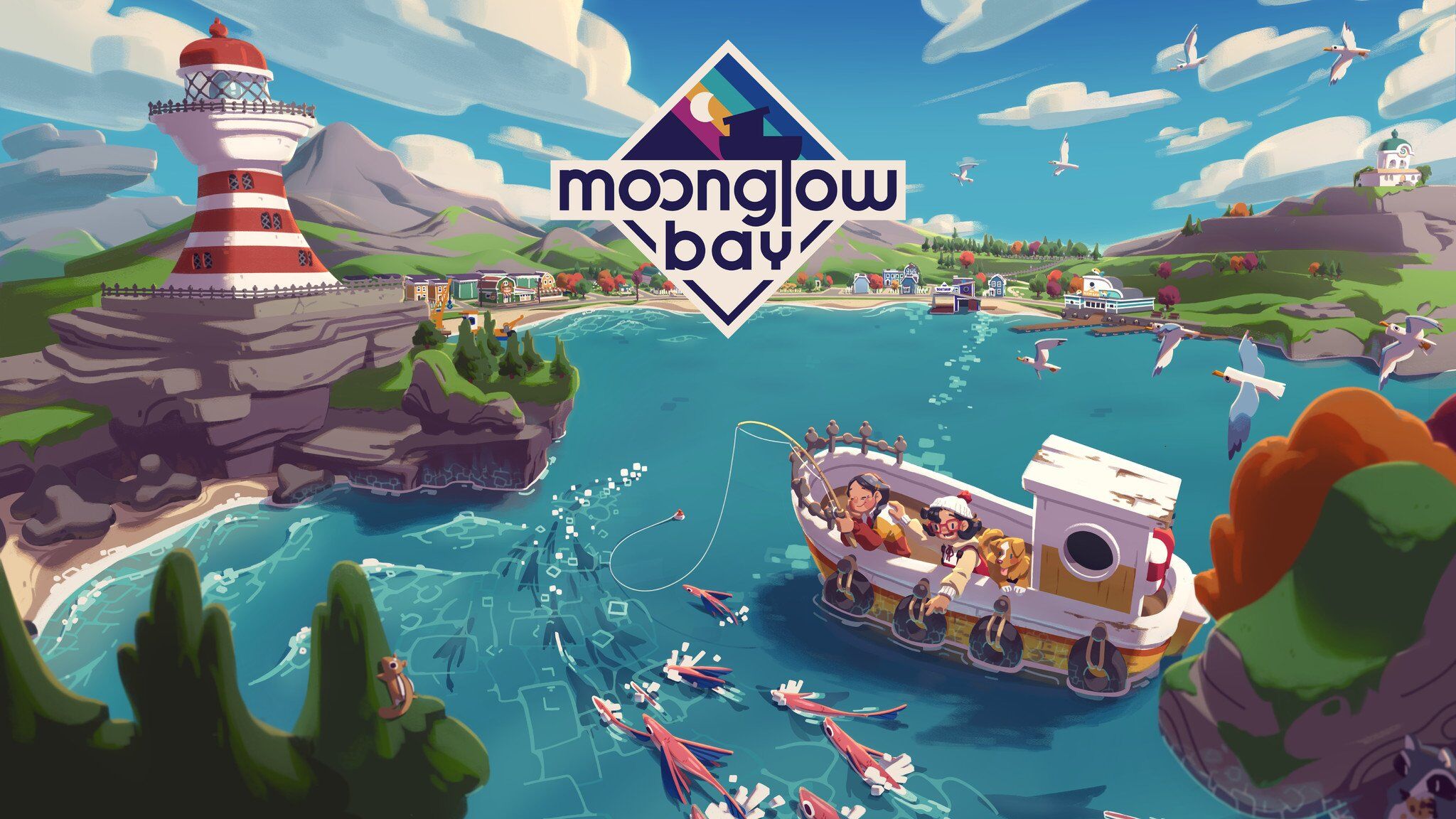
Joel: I hope so. I mean, I think it’s great. And there was Moonglow Bay as well. That might have been nice too. It’s fine. It’s fine. It’s fine. So yeah, fishing is a really small niche. And we, in order to sort of grab a slightly larger part of the audience, we knew we had to make it more accessible to people. So we didn’t want to make it a hardcore horror game as well. Because also we don’t like hardcore horror games either. We like environmental, atmospheric kind of moody stuff. So, yeah, that’s what you’ll find in Dredge to try to make it more accessible. Similarly, there are too many fishing games that are frustrating to play. And our fishing mini game is actually optional. You don’t have to play our fishing mini game. It’ll just go faster if you do push the buttons. So yeah, all things that we did to try to make it as accessible as possible for a wider audience.
Alex: Yeah, I think early on, yeah, definitely early on. I didn’t know exactly like what, I don’t think I knew what the target audience was for this game because it’s like fishing themed. Like, I don’t know what box it goes in. You can’t call it like a fishing sim because it doesn’t go with those games that are very like, I’m going, you go and choose what bait you want. You choose your spot. You’re like reeling. It’s got all these mechanics. It’s like a real life simulation fishing. That’s not what it is. It doesn’t really fit in with the horror games exactly, it’s this weird thing. And I think at some point I just kind of stopped thinking about it. But our play testers were guiding us in the right direction. We would tailor it to our own tastes and then we would get, and our play testers would kind of approve them.
Joel: They would validate.
Alex: Validate, that’s the word I’m looking for. They would validate whether or not, you know, what we’re doing is working.
Boiling Steam: How important were the playtesting sessions for the development of the game?
Alex: That’s a big part of our studio play testing, yeah. Anything back from your play test, from the play tester, but as it seemed you were really adamant on, okay, that should stay that way and then you’re not a play tester. Yes, there is one big thing was tutorials. Because we didn’t have tutorials until quite a while into it. We just left it and we were like, we’ll see how much of it explains itself. And we don’t like to interrupt people or bring them out of the experience. We want it to be immersive. So funnily enough, at some point play testers were asking for more tutorials. They were like, oh, I want to be told what to do here. So we added tutorials up to the point that we satisfied them, which I think is actually a good way around to do it, rather than add tutorials from the beginning and be told you have too many tutorials and have to remove them.
Joel: Yeah, we found in observing our players that actually they knew what to do, but the fact that they weren’t shown a tutorial was more distracting because they were like, oh, am I doing the right thing? There should be something telling me what to do. They’re so used to some kind of tutorial that we added just enough to satisfy and let them know they were doing the right thing.
Boiling Steam: What do you know about your current audience for Dredge?
Alex: Cozy Games is a big audience that I hadn’t actually really considered, but that’s like people who play Stardew Valley. That’s this kind of genre. I thought that there would be some appeal there, but I wasn’t exactly sure because we’ve got the whole other side of the game. I actually don’t know if I… What is that audience right now?
Joel: I think our target audience is basically us. It’s like 18 to 35. I think it skews pretty evenly male and female, but it does skew slightly older than your average game, I think.
Alex: I think people who enjoy indie games and variety in their games enjoy Dredge. It’s not a AAA blockbuster, you know. It’s a little different.
Boiling Steam: In terms of design, did you have any signature in mind or visual style when you started this game? Did you have a clear image?
Alex: I don’t think I had… I didn’t have a solid image in mind. I like to think about what the game wants to be or what will work for the game, but I think we talked about it earlier about how the prototype influenced the look of Dredge a lot because that already kind of worked. I had my own influences in my art style as well. I like a lot of abstract art, more abstract art, not fully abstract, but more expressive art like you might see in the portraits in Disco Elysium or concept art for Dishonored. I really love the shapes and how they kind of like… It’s a little bit off reality. These are my main inspirations of my own personal art. I also… For Dredge specifically because it’s a little bit cartoony and stylized, I think making everything quite harsh, hard-edged, you’ll see it’s quite… It’s a harsh cartoony style, I guess. And I think that really complements the mechanics of the game, which is cozy horror, so you’ve got two parts. You’ve got harsh, cartoony, cozy horror. So once this started working… It was a little bit of experimentation to get there. Once it started clicking, I had… There were two parts of two specific pieces of art in the game that I did that became the kind of anchors that I used to do all the other art. And in-game it was… when I got the clouds in the game, the clouds are very angular. Normally they’re soft and fluffy like they are in real life or in other games. Our clouds are angular and hard. Once I saw that in-game after some experimentation, I was like, that’s the look that I want. And 2D-wise, after I had painted the fishmonger character, that was the character that became the benchmark for making all of the other 2D art. And I guess those drove the consistency for the rest of the project.
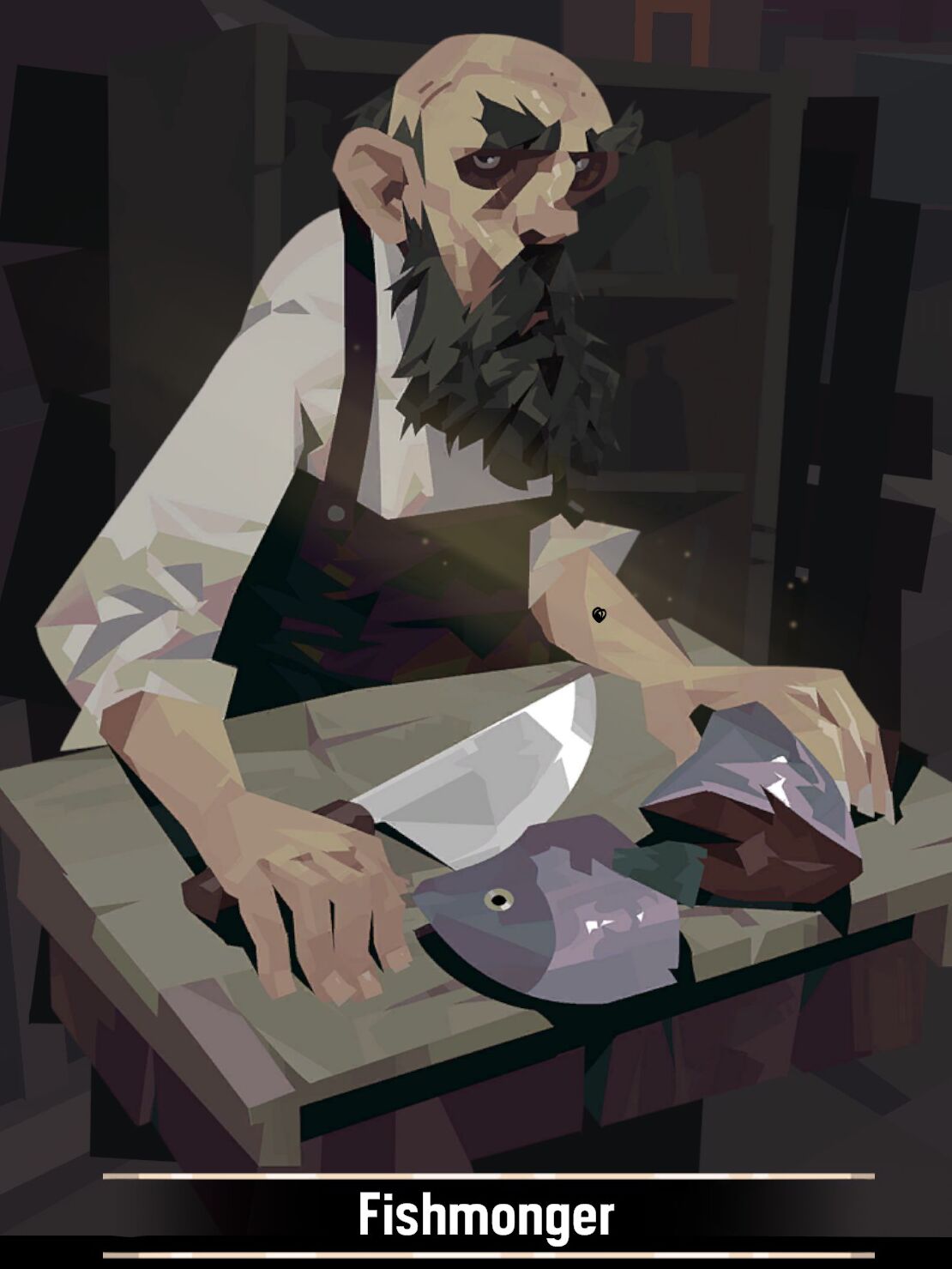
Boiling Steam: Did you get bored after drawing yet another fish you reached like a hundred of them?
Alex: Yeah, I mean, sometimes I can get tired of drawing fish, for sure. We’ve got a lot of fish. And a lot of fish are really similar. So you draw… Sometimes you draw one fish and you think you’ve drawn all of the fish. Yeah. But then the sea will surprise you and give you something wild like the barrel-eye, which is an insane looking fish. And then you get to… It’s a little bit refreshing when you get to do all the aberrations and stuff and you get to mess them up and see, you know, what you can create. But yes, I’ve drawn enough fish, I think, for a while.
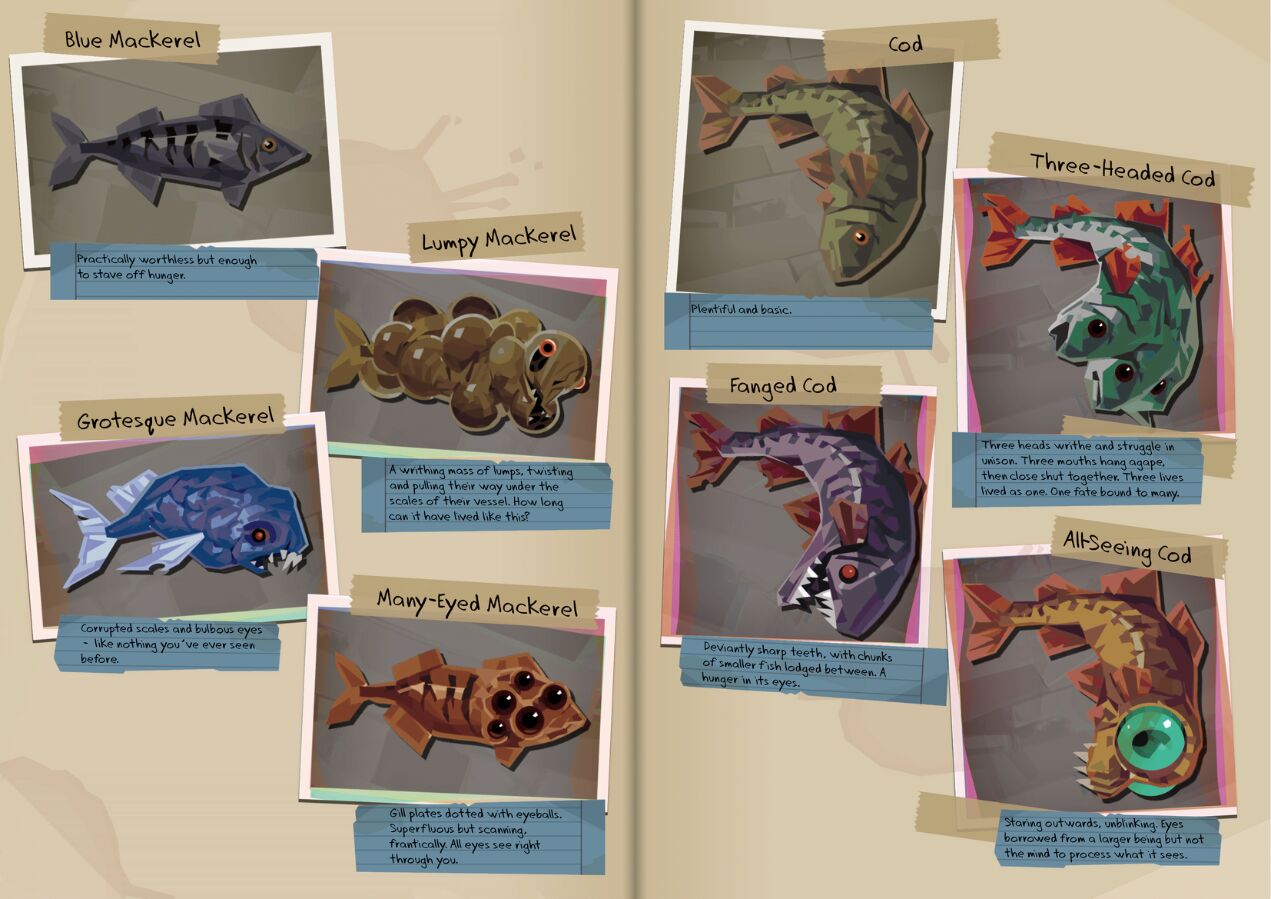
Joel: I feel like we’re obliged to put a fishing mini-game in whatever we do now. Yeah. Do you have these two dudes who do fishing mini-games?
Boiling Steam: I was wondering on the topic of… As a hobby I have, we’re trying to do some prototypes in Unity and obviously as an artist you always have stuff you like to throw. In a game you have a lot of stuff to throw and lots of stuff that you might not like. Yes. I was wondering, when you see the art, with the grinding going on in game dev, it’s not very easy. How do you give yourselves some feedback within the team?
Joel: So I think that all of the negative feedback about your art comes from you. (pointing at Alex, the designer)
Boiling Steam: You’re a perfectionist. (talking to Alex)
Joel: A perfectionist. There are so many times when he’ll post up a concept or something in our chat channel and I’ll say, yep, looks great. Put it in the game.
Alex: Yeah, that worries me. You say like, ship it. I’m like, oh no, that’s not done.
Joel: I think we rely on, again, our playtesters to give us that negative feedback because they’re…
Boiling Steam: Did the playtesters ever give you feedback on graphics?
Joel: I mean, not really the graphics.
Alex: Yeah, I mean, there’s only two artists on this team and we work together really well and we’ve worked together for a long time. It’s very easy to say to each other if something’s working or not and it often does just work anyway.
Joel: So it’s collaborating as you make it.
Alex: Yeah, we do. So that might be a problem for a future game, but it wasn’t so much on Dredge.
Boiling Steam: Because then you have a very good relationship. That means you can trust the feedback. It doesn’t sound negative.
Alex: We’re very used to that after working. We worked previously at our previous studio for Work for Hire. We got sometimes very direct, sometimes brutal-sounding feedback and you just, you know, you get used to it. I don’t know, yeah.
Joel: Most of my feedback for your art is add more teeth to that fish. Most of my feedback is add more teeth to that fish. Well, because the design was all collaborative.
Boiling Steam: Does the opposite also happens? Did you give feedback on the story?
Joel: The design is all collaborative. But the story, I mean, you actually came up with the structure of the story and then I just wrote all the stuff. So again, the story was collaborative, too. Yeah.
Boiling Steam: How do you feel about the whole Unity change of fees that’s been happening recently? Are you going to switch to something else?
Joel: So, we’re not going to port Dredge to another engine. It’s obviously out there. Yeah, there’s no point in us doing that. And I think our main concerns around the fee changes is that the way it was delivered. I understand that Unity, as a company, needs more money. Sure, that’s fine. But the way that it has kind of destroyed any trust that developers have in the company is pretty concerning. And even if they backpedal, it shows that they could do it again. And that sucks.
Boiling Steam: Do you think that they could have handled it in a different way? How could they have done this better?
Joel: I think a larger runway to when this policy might happen. And also a statement that, you know, this will only apply from a version from Unity 2023 onwards, not just retroactively.
What’s Next
We will be back with our impressions on the Pale Reach DLC soon enough. In the meantime, if you have not played the base game, now is as good of a time as ever!
